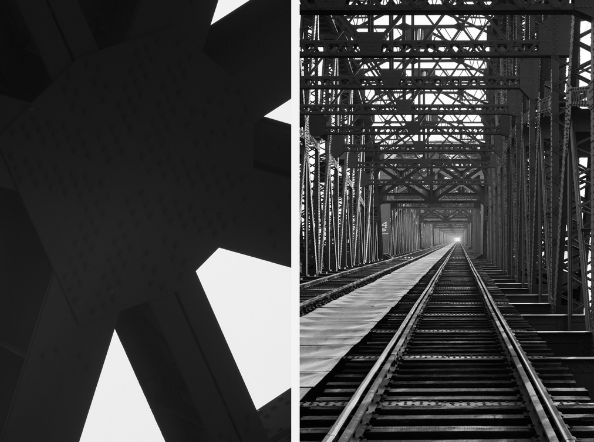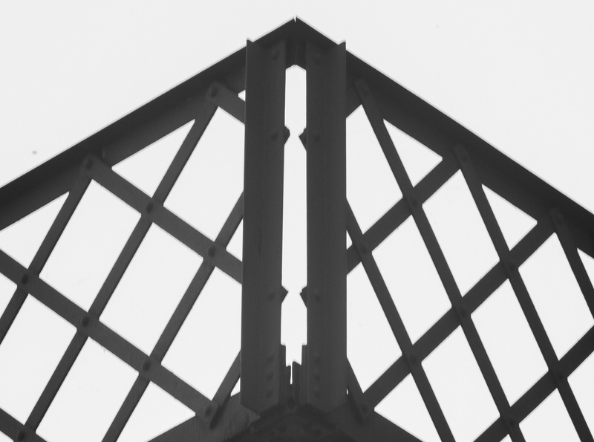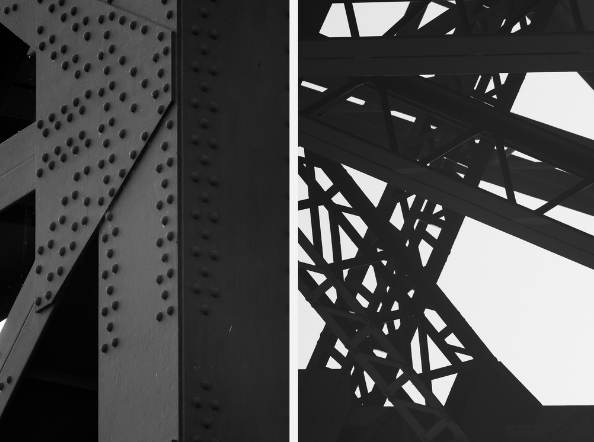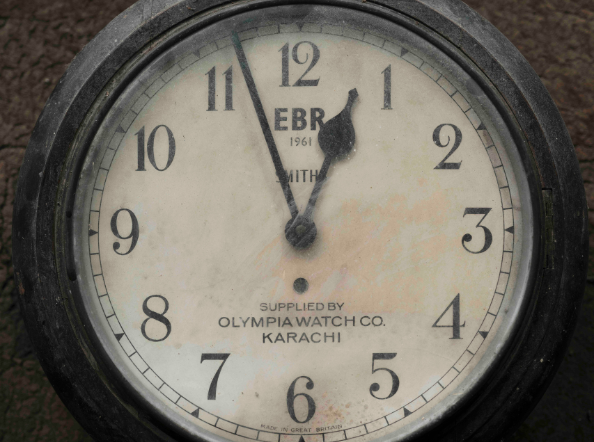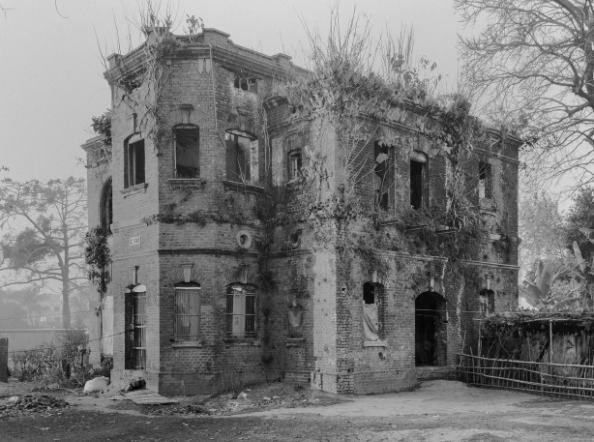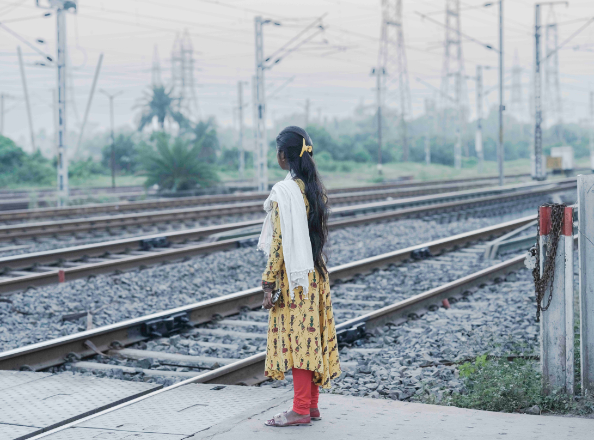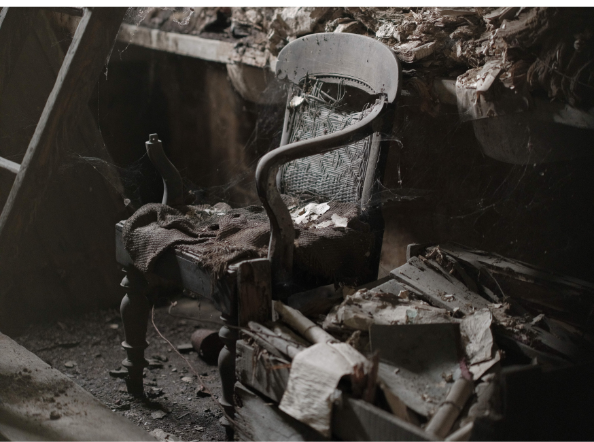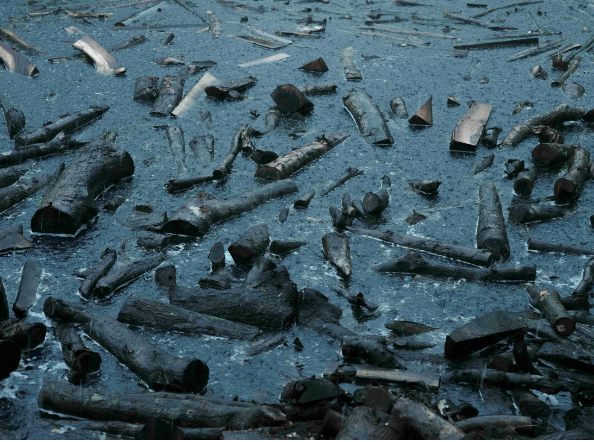-
Exhibitions
Artworks
Curatorial Essay
- ইস্পাতের পথ [Ishpater Poth] / Crossing |
Asia Now, Paris
- — Sarker Protick
We are presenting two significant bodies of work by Sarker Protick, Crossing
and Steel Works at Asia Now.
Crossing, 2022– ongoing
Since 2022, Sarker Protick has been exploring the railway in Eastern Bengal and in West Bengal (present day India) as part of his project Crossing. Once
part of British India, this region became East Pakistan in 1947 and eventually Bangladesh in 1971.
“In Satyajit Ray's 1955 neo-realist classic Pather Panchali (Song of the Little Road), the details of village life in turn of the century Bengal float on a breeze of gentle games, rituals, and boredom of two young children. In an early scene, at once promise and danger, the children chase each other through a dense kash grass field and then suddenly stop, games forgotten. These inhabitants of a remote village in British India have stumbled upon an alien creature of iron and smoke. A train cuts the horizon line and bifurcates the cinema screen at an angle. The modernity of mechanized transport has
arrived somewhere at a distance; though it may bring opportunity, it also hints at how quiet village lives, with no sense of an outside world, are about to
change forever. Ray placed the railway as a jagged arrival in the lives of naive, happy village humans. All that befell their lives in subsequent years–mysterious disease, loss of prestige, eroding religious rites, forced migration, and city alienation–unfold over three harrowing films that make up
the Apu Trilogy.
In Sarker Protick's long-term research project, the camera gaze has shifted from that far-away child's view, to a chastened adult nation's silent witnessing.
His canvas is the sinewy rail system that is the British Empire's lasting mark on the part of India that was once East Bengal, then East Pakistan, and finally Bangladesh. Reversing Ray, these photographs have emptied the space of people–what we see instead are skeletal train tracks, and the architecture of commerce, habitation, manufacturing, and entertainment that grew up around this ecosystem of connectivity. There are occasional human figures–a nurse, an entertainer, a sanyasi–but they carry an air of confusion, almost as if the mela of human activity that surrounded these depots for a century have abandoned them, and they forgot to catch the last train leaving the station.”
-Text by Naeem Mohaiemen
STEEL, 2023
[Hardinge Bridge, Padma River]
Bangladesch / Bangladesh
The steel railway bridge, named after Lord Hardinge, the then Viceroy of British India, was built between 1910 and 1915. It stands as a testament to
colonial engineering, the use of steel, and the mobility offered by rail transport. In this context, Sarker Protick’s images capture not just the bridge itself, but also the immense weight of the hidden structures that underpin the global resource trade. Their strong contrasts and fragmented architectural forms
further evoke the visual language of New Vision photography, particularly reminiscent of Germaine Krull’s 1928 portfolio, Métal.
click the link
